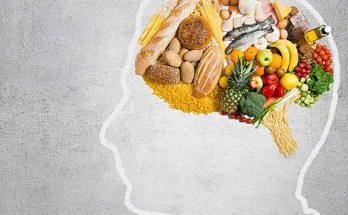
We all know the feeling: a rumble in your stomach, a slight headache, maybe a touch of irritability. These are your body’s built-in signals telling you it’s time to refuel. But What Happens When You Ignore Hunger Cues and eat when you’re not truly hungry?
The answer isn’t a simple one. While occasionally indulging outside of hunger pangs might not be a huge deal, making a habit of it can have consequences for your body and overall health. Let’s delve into the science behind eating when not hungry and explore the potential impacts.
The Hunger Dance: Hormones and Signals
Our hunger and fullness are orchestrated by a complex interplay of hormones. Ghrelin, secreted by the stomach, is the hunger hormone, stimulating your appetite. Conversely, leptin, produced by fat cells, sends satiety signals, telling you to stop eating. When you’re hungry, ghrelin levels rise, and leptin dips. This hormonal dance regulates your food intake and helps maintain a healthy weight.
Ignoring Hunger: Disrupting the Balance
When you consistently eat when not hungry, you disrupt this delicate balance. Ghrelin continues to be released, even if your body doesn’t need the energy. This can lead to overeating and potentially weight gain. Over time, leptin sensitivity might decrease, meaning your body doesn’t receive the “stop eating” signal as effectively, further contributing to overconsumption.
Beyond Weight Gain: Other Potential Issues

While weight gain is a common concern, here’s a look at some other potential consequences of ignoring hunger cues:
- Digestive Issues: Eating when not hungry can put a strain on your digestive system. Your body might not be in prime condition to break down and absorb nutrients effectively, leading to bloating, discomfort, and even acid reflux.
- Blood Sugar Rollercoaster: Frequent snacking outside of hunger pangs can disrupt blood sugar levels. Initially, you might experience a surge in energy followed by a crash, leaving you feeling tired and craving more food.
- Nutrient Deficiencies: Eating when not hungry often leads to grabbing convenient, calorie-dense options, which might lack essential nutrients. Over time, this could lead to deficiencies in vitamins, minerals, and other vital components for good health.
But Wait, There’s More!
Now, before you banish all snacks from your life, it’s important to acknowledge some exceptions. Here are situations where eating when not hungry might be necessary:
- Athletes: Athletes with high energy demands might need to eat strategically to maintain their calorie needs, even if they don’t feel a strong hunger pang at the moment.
- Medical Conditions: Certain medical conditions might require specific eating patterns or timed meals. Always follow your doctor’s recommendations.
- Intuitive Eating: The concept of intuitive eating encourages listening to your body’s hunger cues, but also acknowledges the enjoyment of food. Occasionally indulging in a treat, even if not strictly hungry, can be part of a healthy relationship with food.
The Key: Tuning into Your Body’s Needs
So, the real takeaway is to develop a mindful awareness of your body’s hunger and fullness cues. Here are some tips to help you navigate:
- Pay attention to internal signals: Listen to your stomach growls, energy levels, and mood changes. These are your body’s way of communicating its needs.
- Focus on quality over quantity: When you do eat, choose whole, nutrient-dense foods that will keep you feeling satisfied for longer.
- Slow down and savor: Eat slowly and mindfully, paying attention to your body’s satiety cues. Stop when you’re comfortably full, not stuffed.
- Find healthy alternatives for emotional eating: If you find yourself reaching for food to cope with stress or boredom, explore alternative coping mechanisms like exercise, meditation, or spending time with loved ones.
Conclusion
Remember, a healthy relationship with food is all about balance. Learn to listen to your body’s hunger cues, but don’t be afraid to nourish yourself when needed. By tuning into your internal signals and making mindful choices, you can create an eating pattern that supports your overall well-being.
Read Similar Posts…
- Nutrition Guidelines for Weight Management and Body Composition
- The Silent Thief: How Sleep Deprivation Wreaks Havoc on Your Body
- Everyday Habits Hijacking Your Happiness: Unrecognized Threats to Mental Wellbeing


